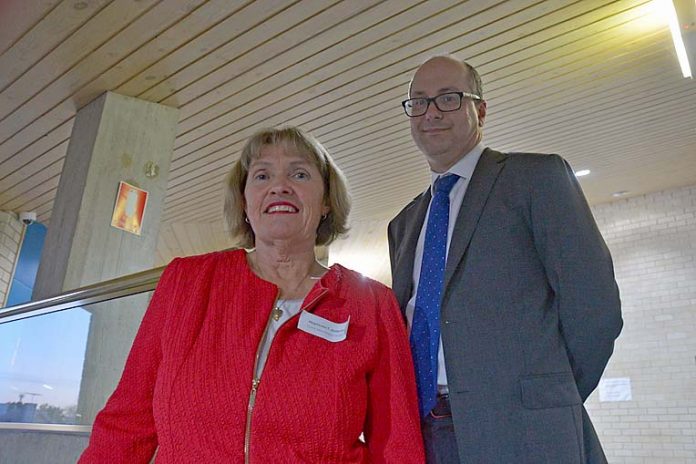
A WELCOME change to legal proceedings in Mount Gambier is expected to improve court efficiency in the region with the Office of the Director of Public Prosecutions (ODPP) taking on a larger responsibility from the South Australian Police.
The reform will see major indictable offences transferred to the ODPP immediately after the first court appearance, allowing more time for the office to become familiar with the file.
South Australian Director of Public Prosecutions, Adam Kimber visited Mount Gambier Magistrates Court on Tuesday evening to shed more light on the initiative.
Mr Kimber, the most senior prosecutor in the state was excited to discuss the benefits of the reform to a room filled with local defence lawyers and several other legal associates.
“My office will be taking responsibility for major indictables, the most serious criminal matters, right from the beginning of the criminal process, which hasn’t been possible in country areas until this reform,” Mr Kimber said.
In metropolitan areas, the ODPP has been responsible for major indictable committals for over two decades, however limited resources and challenges geographically have made it difficult to reflect the same process in regional areas.
“The office hasn’t had the funding in the past to take on this extra work, but 12 months ago the government provided funding to go towards this project,” Mr Kimber said.
“Geography in the past also made it difficult, but now with the access to incredible technology, we can communicate with different parties from Adelaide.”
The change is expected to improve court lists by maximising early resolutions of matters and allowing files to move forward at a faster rate.
“The number of matters listed in higher courts will be reduced, easing court backlogs, while prosecutors will be able to identify matters that might be in dispute – helping to resolve matters sooner and more efficiently,” Attorney-General John Rau said.
Mr Kimber said the reform will ease the pressure on defendants, victims and witnesses, who all prefer having the matter they are associated with, finalised as soon as possible.
“Defendants will be able to negotiate at a much earlier time than they can today to try and have a matter resolved as quickly as possible,” Mr Kimber said.
“That is also in the interest of victim’s because the earlier a matter is resolved takes some step towards relieving the stress of that matter.”
Magistrate Teresa Anderson was in full praise of the new reform, which she believes will see a number of benefits.
“It is the hope that the overall system will run more effectively and that some of the measures will address the large delays with trial matters in the district court,” Magistrate Anderson said.
“If we all work together with it, hopefully it will benefit defendants, victims and defence counsel.”








